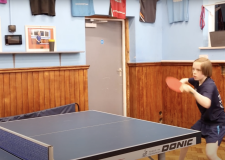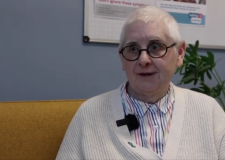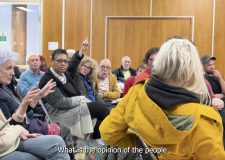Marathon organisers urged to back Brighton and Hove charities
The organisers of the Brighton Marathon are to be asked to make it easier for runners to raise money for local charities.
The 2014 marathon currently has four national charity partners and a directory of other big national organisations which runners are encouraged to support.
The marathon website also lists four local partners although only one of them, Blind Veterans UK, formerly known as St Dunstan’s, is regarded as a Brighton charity. Yet even Blind Veterans UK has its head office is in London.
The other three “local” charities are the Sussex Association for Spina Bifida and Hydrocephalus (SASBAH), based in Heathfield, St Wilfrid’s Hospice, based in Chichester, and the Lullaby Trust, which is based in London.
Runners can support any charity or none.
The call for the marathon organisers to work more closely with local charities was made at the Brighton and Hove Strategic Partnership this afternoon (Tuesday 10 December).
It came during a presentation about Community Works, newly formed from the merger of the Community and Voluntary Sector Forum (CVSF) and three other groups.
Sally Polanski, the CVSF chief executive, said that talks had been started with Brighton and Hove City Council about the possibility of developing a “local giving” scheme.
She said that there was a great deal of philanthropy in Brighton and Hove but said that runners registering for the marathon were directed to a list of mostly big national charities.
She said: “We’ve got 1,700 organisations in the city that marathon runners could fundraise for.”
Four hundred of those organisations are members of Community Works.
Strategic Partnership chairman Tony Mernagh said: “The marathon is a fantastic event and one of the best additions to the city’s calendar.
“There is a feeling that events that happen here should be of transparent benefit to the city.
“Events like the old crocks run generate advertising that money can’t buy.”
He said that, with the marathon, some felt that all its charity partners should be local.
Community and voluntary sector representative Ian Chisnall said: “My understanding is that in the past they’ve tried to strike a balance between the well-known national charities and local ones.”
Senior council official Paula Murray said: “Some of the bigger charities buy a block of places which may be beyond the means of local charities.”
One suggestion was the formation of a consortium of local charities to buy a block of places itself.



















